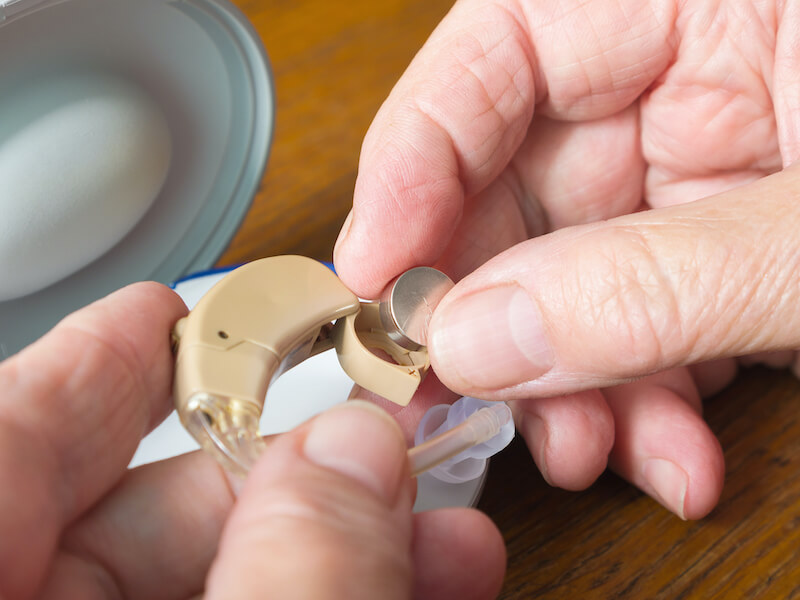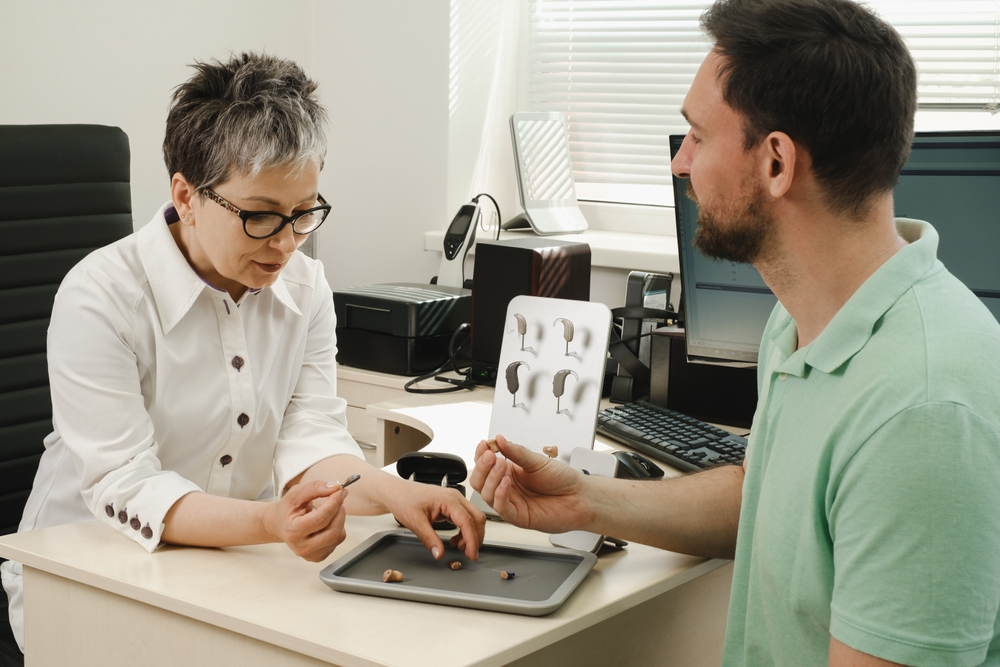Does it seem like your hearing aid batteries drain way too fast? Here are some unexpected reasons that might happen.
How long should hearing aid batteries last? The standard hearing aid battery lasts anywhere from 3 to 7 days.
That’s a very wide range, So wide, in fact, that it’s unpredictable and leaves you in a serious predicament.
You could be on day 4 at the grocery store. Suddenly, things get quiet. You can’t hear the cashier.
Or it’s day 5. You’re enjoying a night out with friends. Suddenly you find yourself feeling very alone because you can no longer follow the conversation.
Now, you’re at your grandson’s school play. You can no longer hear the children singing. Wait, it’s only day 2. Yes, sometimes they even drain before that 3-day mark.
It’s not just inconvenient. You’re missing out on life because you don’t know how much juice you have left in your hearing aids.
Here are 7 likely culprits if your hearing aid batteries drain quickly.
Moisture can drain a battery
Did you know that humans are one of the few species that release moisture through their skin? You do it to cool off. You do it to get rid of excess sodium or toxins in the blood. On top of this, you may live in a humid or rainy climate where things get even wetter.
This extra moisture can clog the air vent in your device, making hearing aids less efficient. It can even drain the battery directly by interacting with the chemicals that produce electricity.
Here are a few steps you can take to avoid moisture-caused battery drain:
- Open the battery door before storing the aids
- Don’t leave the batteries in if you’re storing them for several days
- Get a dehumidifier
- Don’t keep your hearing aids in the bathroom or kitchen
Advanced hearing aid features can run down batteries
Modern digital hearing aids help people hear so much better than ones that came out just 10 years ago. But these extra features can cause batteries to drain faster if you’re not paying attention.
Don’t stop using your favorite features. But just know that if you stream music all day from your smartphone to your hearing aids, you’ll need to replace the battery sooner.
Noise-canceling, Bluetooth, multichannel, tinnitus relief — all of these extra features can drain your battery.
Altitude changes can affect batteries too
Going from a low to high altitude can sap your batteries, especially if they’re on their last leg. When flying, skiing, or climbing always takes some spares.
Is the battery really drained?
Some hearing aids tell you when the battery is low. As a general rule, these warnings are giving you a “heads up”. They’re not telling you the battery is dead. On top of this, sometimes an environmental change in humidity or altitude temporarily causes the charge to dip and the low battery alarm gets triggered.
Take the hearing aids out and reset them to stop the alarm. You may be able to get several more hours or even days out of that battery.
Improper handling of batteries
You should never remove the little tab from the battery before you’re ready to use it. Always wash your hands before handling your hearing aids or batteries to avoid getting hand oil or dirt on them. Never freeze hearing aid batteries. It doesn’t extend their life as it might with other types of batteries.
Simple handling mistakes like these can make hearing aid batteries drain quickly.
Buying a year’s supply of batteries isn’t a good idea
Buying in bulk is often a smart money decision when you can afford to do it. But as you get toward the end of the pack, the last several batteries likely won’t last as long. Try to stick with a 6-month supply or less unless you’re okay with the waste.
Buying hearing aid batteries online
This isn’t a general criticism of buying stuff online. You can get some great deals. But some less scrupulous people will sell batteries online that are very near to the expiration date. Or worse, it has already passed.
Both alkaline (AA, AAA, etc.) and zinc hearing aid batteries have an expiration date. You wouldn’t buy milk without looking at the expiration. You shouldn’t do that with batteries either. Make sure that the date is well in the future to get the most use out of the pack.
If the website doesn’t state an expiration date, send the online vendor a message, or buy batteries at a pharmacy or hearing aid center instead where you can see it on the box. Only buy batteries from reputable sources.
Hearing aid batteries drain quickly no more
There are several reasons that hearing batteries may drain quickly. But by taking little precautions you can get more energy out of each battery. You might also consider rechargeable hearing aids if you’re in the market for a new set. You dock these on a charger each night for a full day of hearing the next day. The rechargeable batteries only have to be replaced every few years.



